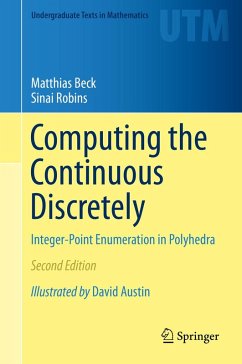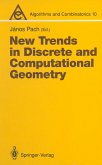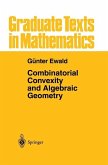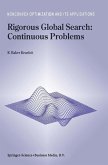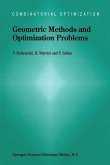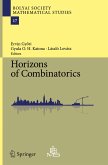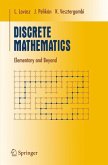The topics include a friendly invitation to Ehrhart's theory of counting lattice points in polytopes, finite Fourier analysis, the Frobenius coin-exchange problem, Dedekind sums, solid angles, Euler-Maclaurin summation for polytopes, computational geometry, magic squares, zonotopes, and more.
With more than 300 exercises and open research problems, the reader is an active participant, carried through diverse but tightly woven mathematical fields that are inspired by an innocently elementary question: What are the relationships between the continuous volume of a polytope and its discrete volume?
Reviews of the first edition:
"You owe it to yourself to pick up a copy of Computing the Continuous Discretely to read about a number of interesting problems in geometry, number theory, and combinatorics."
- MAA Reviews
"The book is written as an accessible and engaging textbook, with many examples, historical notes, pithy quotes, commentary integrating the mate
rial, exercises, open problems and an extensive bibliography."
- Zentralblatt MATH
"This beautiful book presents, at a level suitable for advanced undergraduates, a fairly complete introduction to the problem of counting lattice points inside a convex polyhedron."
- Mathematical Reviews
"Many departments recognize the need for capstone courses in which graduating students can see the tools they have acquired come together in some satisfying
way. Beck and Robinshave written the perfect text for such a course."
- CHOICE
Dieser Download kann aus rechtlichen Gründen nur mit Rechnungsadresse in A, B, BG, CY, CZ, D, DK, EW, E, FIN, F, GR, HR, H, IRL, I, LT, L, LR, M, NL, PL, P, R, S, SLO, SK ausgeliefert werden.
Reviews of the first edition:
"You owe it to yourself to pick up a copy of Computing the Continuous Discretely to read about a number of interesting problems in geometry, number theory, and combinatorics."
- MAA Reviews
"The book is written as an accessible and engaging textbook, with many examples, historical notes, pithy quotes, commentary integrating the material, exercises, open problems and an extensive bibliography."
- Zentralblatt MATH
"This beautiful book presents, at a level suitable for advanced undergraduates, a fairly complete introduction to the problem of counting lattice points inside a convex polyhedron."
- Mathematical Reviews
"Many departments recognize the need for capstone courses in which graduating students can see the tools they have acquired come together in some satisfying way. Beck and Robins have written the perfect text for such a course."
- CHOICE

